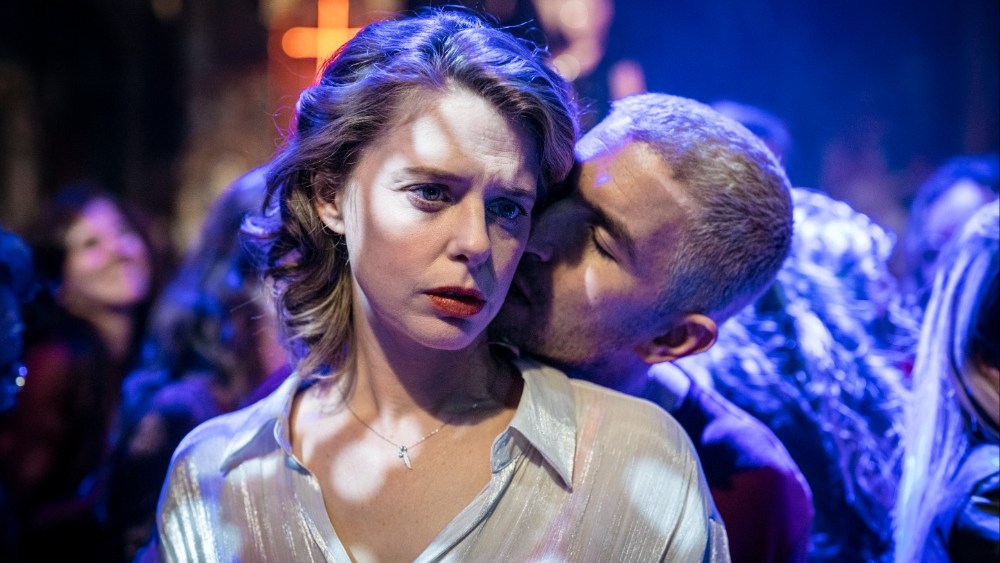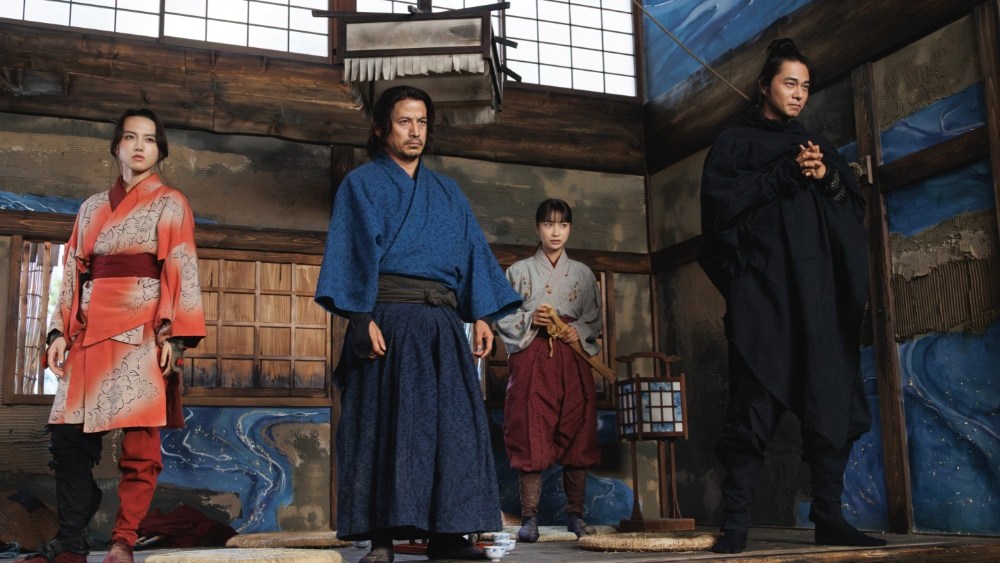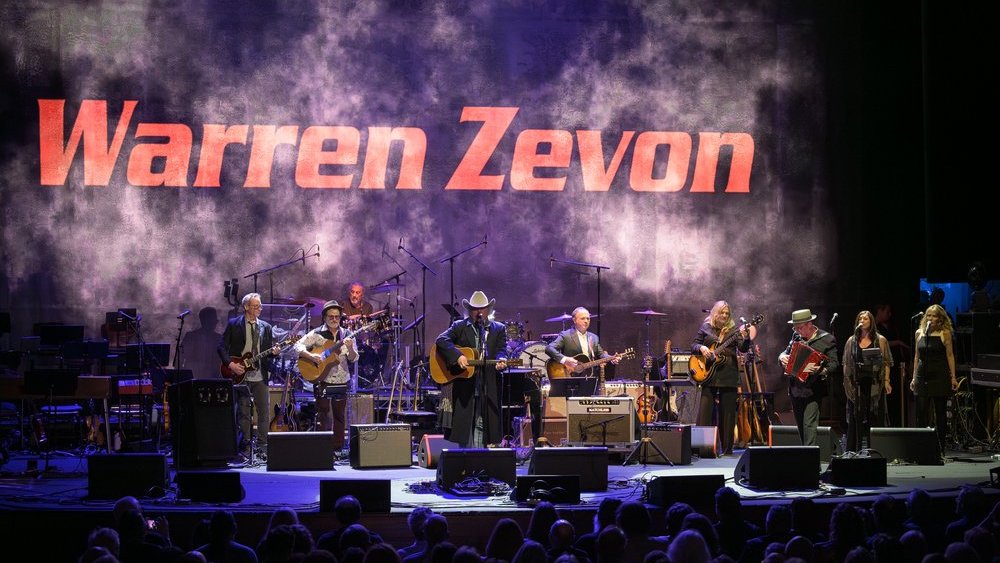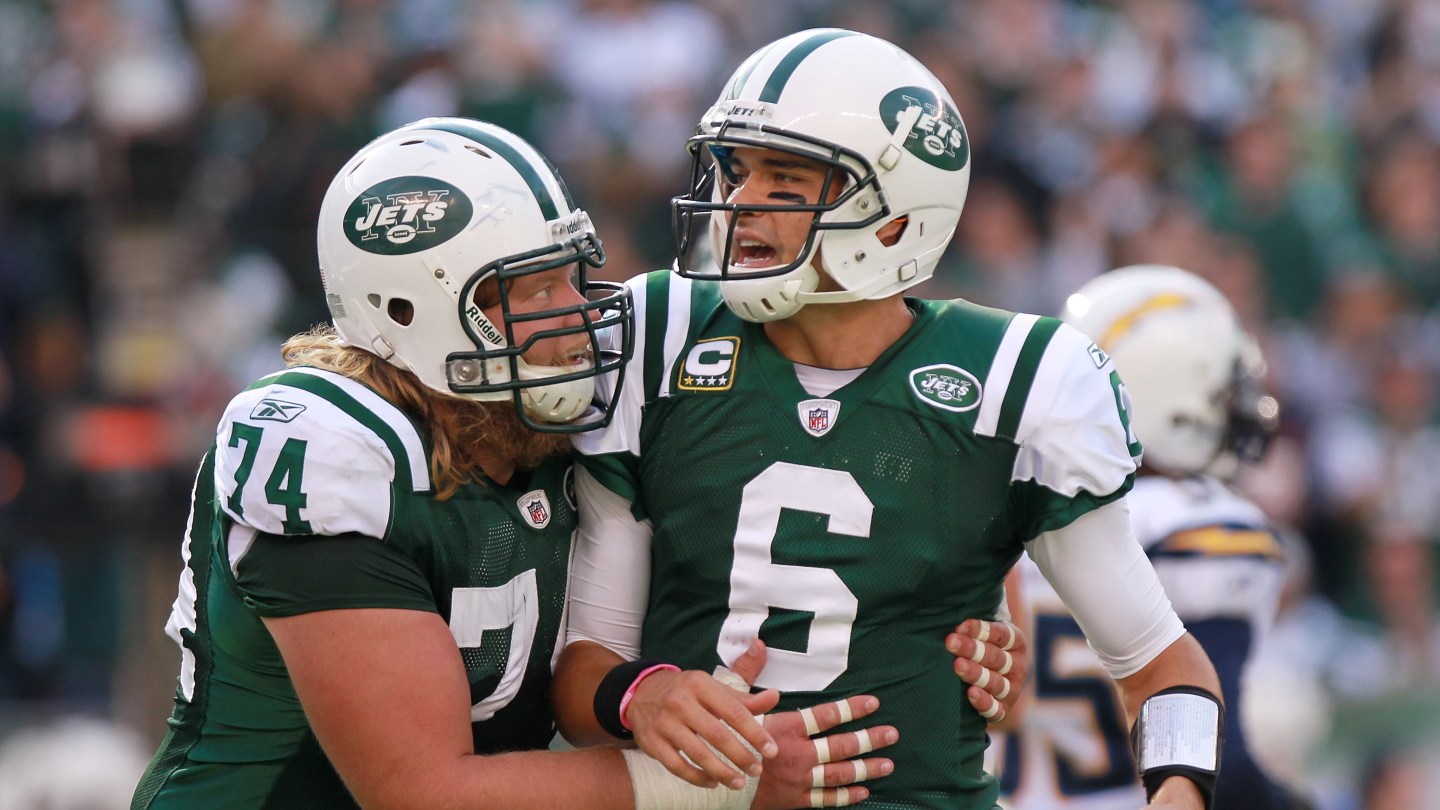I’ve never been wild about the term “faith-based movie” — or, at least, the idea that it should only be applied to PG-rated calamity-meets-redemption Sunday-school soap operas micro-targeted to Evangelicals. “Song Sung Blue,” in almost every way, is a faith-based movie, though this one is rooted in the holly holy dream of devotion to the church of Neil Diamond. It’s based on the true story of Mike and Claire Sarina (played by Hugh Jackman and Kate Hudson), who in the late ’80s and ’90s formed a Neil Diamond tribute band, performing as Lightning & Thunder (he’s Lightning, she’s Thunder). At first, the movie may strike you as a parable of more kitsch than faith.
The two meet at a performance at a scuzzy casino in their hometown of Milwaukee, where assorted semi-amateurs get up to impersonate dead legends like Elvis and Buddy Holly. She’s dressed as Patsy Cline and does a pretty good rendition of “After Midnight.” He’s supposed to go on as Don Ho and sing the 1966 novelty hit “Tiny Bubbles,” but he’s so tired of singing it that he quits on the spot. As we learn pretty quickly, Mike and Claire are both broken-down middle-aged Middle Americans toting around a private load of sorrow.
Each is divorced with kids. He’s a Vietnam veteran and 20-years-sober alcoholic who works odd jobs as a mechanic and plays in just about any band that will have him. She’s a hairdresser and struggling single mother who isn’t so much thriving as surviving. Together, they hatch an idea: What it they formed a band and sang Neil Diamond songs, not just doing the same old wax-museum versions of old rock stars but tapping into what the people really want?
“Song Sung Blue” was written and directed by Craig Brewer, who has made one amazing movie (“Hustle & Flow”), one good one (“Dolemite Is My Name”), and a few middling ones (“Footloose,” “Coming 2 America”), and the first thing you notice about the film, which Brewer based on a 2009 documentary of the same title, is how unironically it celebrates Karaoke Culture. By that, I don’t just mean what transpires in karaoke bars (though the movie has a number of scenes set in them). I’m talking about the impulse that started in karaoke and carried over to “American Idol” and to something larger: the whole religious dream about pop music that someone who was a nobody could stand up and sing a song made famous by a somebody, and if they did it with enough skill and passion they could channel what was great about that star in a way that turned the very act of channeling into its own sublime expression. Brewer navigates this terrain like a jukebox Jonathan Demme.
Mike worships Neil Diamond, to the point that when he sings, he’s no mere impersonator — he’s closer to a Neil Diamond avatar, coaxing out and dramatizing Diamond’s essence. Hugh Jackman is, of course, a marvelous singer in his own right, and while the film makes the point that Mike isn’t trying to sound exactly like his idol, in “Song Sung Blue” Jackman’s musical performances are transcendent in their ability to signify what we love about Neil Diamond: the low command of his voice, the smooth articulation, the crackling rosiness of it all.
We might look at Mike, in his overcoat of blue glitter, with his long hair cut and styled into a neatly parted Diamond pageboy, and Claire, in her spangled red dress with the gold piping, providing her cascading harmonies, and assume, for a moment, that the movie wants us to see them as some played-straight version of the Culps on “SNL.” But there’s nothing jokey or tacky about their presence, and the actors’ performances do nothing so much as bring the love.
Jackman, with his scuffed fortitude, and Hudson, radiating a stubborn wholesomeness, have an easy-listening camaraderie, to the point that when Mike and Claire fall in love and get married, it feels both casual and inevitable. With a booker (Jim Belushi) who has casino connections all over the Midwest, they start to work the circuit and develop a following. Their ascent becomes complete when they’re in their living room and Mike gets a call from Eddie Vedder, who he’s never heard of (he wonders if Pearl Jam is a fruit preserve). It’s the early ’90s, and grunge hipsters have embraced the pop legends of their youth. When Lightning & Thunder end up opening for Pearl Jam in Milwaukee, and Eddie comes out onstage to sing along with them, they’ve basically just gone to karaoke heaven.
The adversity comes out of nowhere. Literally, as in a bad dream. Claire is standing on her front lawn, and suddenly…a life upended, a body and soul severed, a reality redefined. This is where “Song Sung Blue” flirts, and not so lightly, with becoming that other kind of faith-based movie. I raise the issue because I actually think it has demographic meaning; this is the rare film that feels like it could exert a blue-state-meets-red-state appeal. Or, given how over a certain age Neil Diamond’s nostalgic fan base is, the whole thing could wind up slipping between the cracks. After the calamity occurs, the movie, for a while, loses its pace. Yet Hudson’s anguished performance holds it together. This is let-it-rip acting with the fussiness burned off. And Hudson and Jackman don’t just have chemistry; they have an emotional synergy that grows more moving as Mike and Claire bond together — and fuse, once more, with the power of Neil — to heal themselves.
Mike has physical problems of his own (he keeps having what look like mini-heart attacks, which he ignores since he’s too poor to have health insurance), and on the day of their big reunion show, which is supposed to end with them meeting Neil Diamond at an ice-cream stand, Mike tries to heal a gaping head wound with nail glue. You know he’s in for a hot August night.
As the movie recognizes, there are two kinds of Neil Diamond fans: those who, like Mike, hear the beautiful depths in dozens of his songs (“Cherry, Cherry,” “Brother Love’s Travelling Salvation Show,” “Cracklin’ Rosie”), and the bom bom bom people — the ones Mike can’t stand, who at a Neil Diamond concert experience an epiphany when they pump their fists in the air and sing-shout “bom! bom! bom!” in the middle of the chorus of “Sweet Caroline,” even though it’s not even a lyric. They’re singing along with the trumpet. These are the people who have to enhance the line “Good times never seemed so good!” (“So good! So good! So good!”) until it becomes an existential declaration of the miracle of life.
“Song Sung Blue” is certainly a movie for the bom bom bom crowd. Mostly, though, it’s for the Neil Diamond fans who will listen to Mike and Claire, in their solo show at the Ritz Theater in Milwaukee, in a state of slow-burn bliss. When Mike starts to sing the Arabic chant of “Soolaimon,” Diamond’s single from 1970, it sounds eerie and mysterious, but when the groove kicks in it’s so ecstatic you want to revel in its majesty, the same way Mike does: as a Diamond shining through the darkness.















Leave a Reply